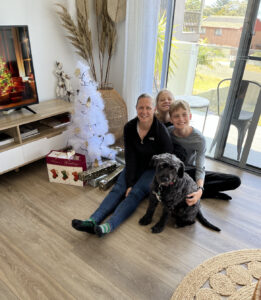As a parent or caregiver, you want to ensure that your journey is as smooth and enjoyable as possible for your child. At Silvermere Coastal Retreat we are a family that has members with Autism. We understand their needs and have curated the house to make it as comfortable for them as it is for the parents or caregivers. We have a zen room and the all-important air fryer for chicken nuggets.
With thoughtful planning and understanding, you can create a travel experience that caters to your child’s needs and fosters positive memories for the whole family.
Here are some essential tips to guide you on your journey:
1. Plan Ahead:
Planning is your greatest ally when it comes to travelling with an autistic child. Research your destination, accommodations, and travel options thoroughly. Choose destinations and activities that align with your child’s preferences and sensory sensitivities. Familiarise yourself with the layout of your accommodations, such as quiet spaces and sensory-friendly areas.
2. Pack Comfort Items:
Familiar items can provide a sense of comfort and security for your child. Pack favourite toys, blankets, headphones, or any items that soothe them. Having these items on hand can help your child feel more at ease in unfamiliar surroundings.
3. Create a Visual Schedule:
Visual schedules or itineraries can help your child anticipate and understand the sequence of events during the trip. Use pictures or symbols to outline each activity, from packing to transportation to daily outings. This can help reduce anxiety and uncertainty.
4. Communicate with Your Child:
Depending on your child’s communication abilities, explain the trip to them using simple language, social stories, or visual aids. Prepare them for any changes in routine or environment, and be ready to answer questions they might have.
5. Choose the Right Accommodations:
Opt for accommodations that provide a calm and safe environment. Ask if the property allows pets as this may assist your child if they can have their trusted companion with them. Check if the place offers sensory-friendly amenities, quiet spaces, or a designated sensory room. Discuss your child’s needs with the accommodation providers ahead of time to ensure a comfortable stay.
6. Sensory-Friendly Activities:
Select activities that align with your child’s sensory preferences. Whether it’s spending time at the beach, exploring a nature trail, or visiting a sensory-friendly museum, tailor your itinerary to activities that your child will enjoy.
7. Be Flexible:
While planning is essential, be prepared for the unexpected. Travel can be unpredictable, and flexibility is key. If a change of plan is necessary, communicate it to your child in a calm and reassuring manner.
8. Pack Snacks and Familiar Foods:
Autistic children often have specific dietary preferences. Pack familiar snacks and foods that your child enjoys to ensure they have options they’re comfortable with during the journey.
9. Consider Sensory Needs:
Take into account your child’s sensory sensitivities when choosing transportation. Whether it’s the noise level of an airplane or the motion of a train, consider what will make your child feel most comfortable.
10. Stay Calm and Patient:
Traveling can be overwhelming for anyone, but it’s especially true for children with autism. Stay patient, and be attuned to your child’s cues. If your child becomes overwhelmed, find a quiet space to decompress.
11. Document Memorable Moments:
Capture the special moments of the journey. Whether it’s your child’s excitement at a new experience or a serene moment of calm, these memories will serve as a reminder of the positive aspects of your trip.
12. Embrace the Joy:
Remember that your journey is an opportunity for growth, bonding, and creating beautiful memories. Embrace the moments of joy, and celebrate the milestones achieved during the trip.
Travelling with a child with autism requires careful planning, but it’s also a chance to embark on a meaningful journey together. By focusing on your child’s unique needs and embracing the adventure, you can create a travel experience that nurtures their growth, curiosity, and happiness. For further help visit Autism Spectrum Australia.


